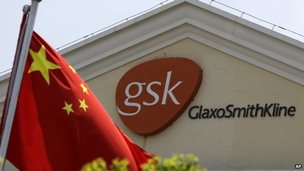July, 4, 2014

Allegations that pharmaceutical giant GlaxoSmithKline (GSK) systematically bribed doctors in China are credible, says an investigator hired by the firm.
Peter Humphrey was hired only to investigate who was behind a suspected smear campaign against GSK.
But after he finished his report, he learned the details of further allegations against the firm and told colleagues he believed they were true.
GSK told the BBC it did not tolerate corruption in its business.
"We have many policies, procedures and controls in place to monitor this and take action against any breaches. As we have said previously, the allegations that have been raised are deeply concerning to us. We are learning lessons from this situation and we are determined to take all actions necessary as a result," it said in a statement.
The allegations against GSK's China operation first emerged in an email in January 2013 from an anonymous and self-styled whistleblower to the company.
This investigation did not find evidence to substantiate the specific allegations made in the emails”
GSK statement
The email, which the BBC has seen, alleges that GSK's sales teams targeted influential doctors with expensive gifts and cash to win business.
It also alleges that some doctors were sent on all expenses-paid holidays masquerading as conferences. The payments were funnelled as fictional expenses through a travel agent.
GSK told the BBC that it had investigated the allegations using external legal and audit advice.
"Some fraudulent behaviour relating to expense claims was identified, and this resulted in employee dismissals and further changes to our monitoring procedures in China.
"However, this investigation did not find evidence to substantiate the specific allegations made in the emails," a GSK statement said.
Since the case came to light, four senior GSK executives have been detained by Chinese police and the former head of GSK China, Mark Reilly, is also effectively detained. Mr Humphrey will stand trial later this year for illegally buying and selling private information.
BBC
Video Story